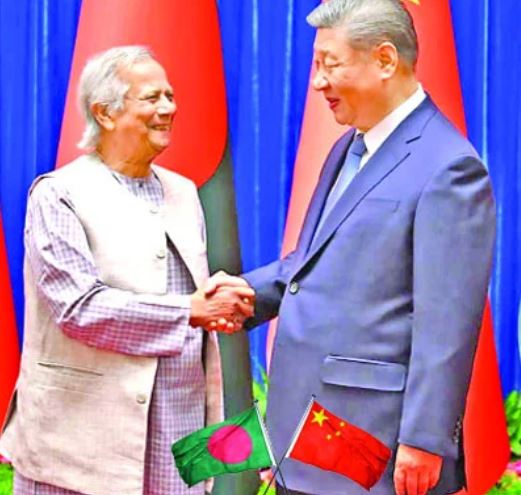The political landscape of Bangladesh is witnessing a fascinating transition, marked by the establishment of the National Citizen Party (NCP). Founded on February 28, 2025, on Dhaka’s iconic Manik Mia Avenue, the NCP stands as a bold, student-led political force born from the spirit of the July Revolution of 2024. This new political party is a refreshing addition aimed at fostering transparency, unity, and sustainable development in an attempt to redefine governance in Bangladesh.
If you’ve been intrigued by this emerging shift in Bangladeshi politics or simply wish to grasp what the NCP truly signifies, this article breaks down the history, objectives, policies, and aspirations of this promising movement.
The Origins of the National Citizen Party
The seeds of the NCP were sown during the turbulent days of the July Revolution, a historic movement that challenged entrenched issues like corruption, discriminatory policies, and authoritarian governance under the administration of Sheikh Hasina. This revolution was driven by a coalition of student organizations, including the Students Against Discrimination, alongside grassroots movements like the Jatiya Nagorik Committee (National Citizen Committee).
It was in the aftermath of this revolution that conversations around a “second republic” gained traction. Leaders from these reformist groups envisioned rewriting the history of Bangladeshi governance, culminating in the formation of the National Citizen Party.
The Uniqueness of NCP’s Foundation
Unlike conventional political parties, NCP is distinct due to several unique factors:
- Student-Led Initiative: NCP emerges as the first major student-led political party in Bangladeshi history.
- Inclusivity and Pluralism: It unites people from various ideological, ethnic, and social backgrounds under a single umbrella.
- Grassroots Democracy: The party prioritizes the sentiment of ordinary citizens, aiming to dismantle centralized power structures in favor of widespread representation.
Core Principles and Vision of the NCP
The NCP is built on the principles of transparency, social justice, and grassroots democracy. It positions itself as centrist and pluralist, committed to bridging societal rifts caused by political polarization. Here’s a snapshot of its guiding principles:
- A “Second Republic” Vision
The NCP’s founding manifesto emphasizes the creation of a second republic for Bangladesh by drafting a new constitution. This step, NCP argues, is essential to dismantle the current systems fostering constitutional autocracy.
- Accountable Governance
Accountability and the active participation of citizens are at the heart of NCP’s policies. The party seeks to challenge the entrenched elitism of traditional Bangladeshi politics by promoting broader representation.
- Anti-Corruption and Economic Equity
A standout feature is its focus on combating corruption through stringent legal frameworks while promoting equitable distribution of resources.
- Self-Reliant and Sustainable Development
The NCP envisions transforming Bangladesh into a self-reliant nation with an emphasis on sustainable development goals, education reform, and robust healthcare infrastructure.
- Anti-Authoritarianism
Firmly anti-authoritarian, the NCP pledges to curb the recurrence of fascist policies and establish political harmony.
Policies Highlighting Citizen Empowerment
To achieve these lofty ideals, the NCP has introduced citizen-centric policies such as:
- Redistributing government resources fairly.
- Strengthening local councils, unions, and districts to improve efficiency at the grassroots level.
- Establishing independent anti-corruption tribunals.
- Balancing urban and rural development through innovative policies in agriculture and small enterprises.
NCP’s Approach to Community and Diversity
One of the NCP’s strongest suits is its emphasis on inclusivity. With an estimated 10,000 members drawn from diverse sections of society, the party places a strong focus on building bridges between communities. A 171-member convening committee includes people from all walks of life, such as:
- Ethnic and Religious Minorities
- LGBTQ Activists
- Women Leaders and Feminists
- Trade Unionists and Farmers
- Retired Military Personnel
NCP leaders have repeatedly stressed that their party transcends the ideological divides of left and right, focusing instead on “Bangladeshpontha” or “Bangladesh First” ideals.
Key Initiatives and Organizational Structure
The NCP operates with a robust organizational framework to ensure grassroots impact. Key wings of the party include:
- Youth Wing
Mobilizing the country’s vibrant youth population to engage in policy-making and social activism.
- Labour Wing
Fighting for fair wages and improved working conditions for Bangladesh’s labor force.
- Doctors’ Wing
Advocating for better healthcare policies and supporting medical professionals.
The party is headquartered at the Rupayan Trade Center in Dhaka, with plans to expand operations nationwide.
Addressing Challenges and Controversies
Every revolutionary movement faces its set of challenges, and the NCP is no different. Critics have raised questions about:
- Political Sponsorship Allegations
Some have accused the interim government of favoring the NCP during its formation.
- Internal Leadership Conflicts
Ideological clashes among rightist, centrist, and leftist factions within the party have occasionally delayed decision-making.
- Representation Issues
The inclusion of marginalized community representatives has sparked debates on broader societal acceptance.
Despite facing some public backlash, the NCP has endeavored to address these valid concerns through greater transparency and proactive dialogue.
Why NCP Represents a New Hope for Bangladesh
The National Citizen Party offers a significant departure from the conventional politics of dynasties and authoritarianism that have long dominated Bangladesh. Here’s why NCP’s rise is noteworthy:
- Youth-Centric Leadership: Unlike traditional political parties, the NCP gives the country’s youth a direct platform in shaping national policy.
- Visionary Goals: With eyes set on the future, NCP commits to long-term impact rather than fleeting political gains.
- Inclusive Politics: An unprecedented emphasis on diversity brings together various communities under a shared vision of progress.
Looking Ahead
The establishment of the National Citizen Party represents a tectonic shift in Bangladeshi politics, demonstrating the power of collective will and grassroots movements. By making transparency, accountability, and inclusion their organizational DNA, NCP has cemented itself as a party to watch for in the coming years.
While challenges are inevitable in rewriting political norms, NCP’s commitment to empowering the average Bangladeshi is a glimmer of hope for a more equitable, prosperous future.
To stay updated on the NCP’s progress and initiatives, visit their official website.






